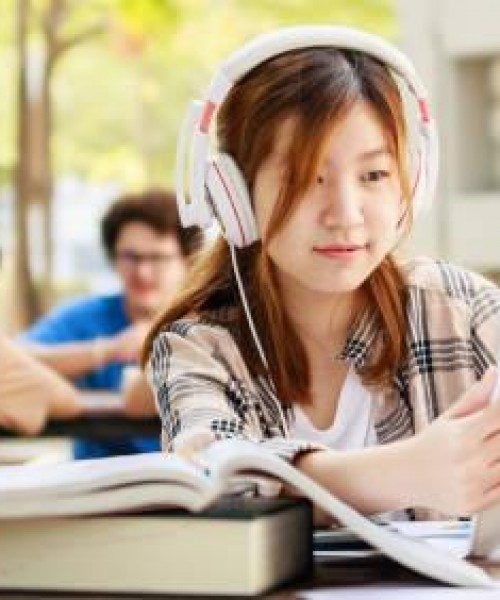在20世纪90年代初,印度尼西亚的增长率为8%,即使现在被认为是非常高的。增长率没有持续,在印尼政府和金融部门的一些严重的缺陷被高亮显示。这实际上导致了一个积极的结果,在该国进行改革,并为其人民的可持续发展的良好的执政的需要。自1998以来,政府一直积极鼓励外商直接投资,包括许可证和特许经营机会。今天在印度尼西亚,一些法律含义仍然没有他们应该那么简单,所以选择正确的市场进入战略是我的产品成功和吸引印尼公众的关键。由公司MSF的影响(成立于瑞士)我想产生急救药箱伴随小册子。这一建议背后的想法是有关的事实,印度尼西亚是最自然灾害多发的国家在亚太地区和世界。在进行了广泛的阅读后,我发现了一个统计表明,平均相比,欧洲,这些地区的居民几乎是80%的教育水平较低的急救程序。许多组织被派到这些国家在灾难后的帮助,但许多小村庄不能达到很长一段时间。有了一个基本的指南,可以挽救许多生命的急救。
In the early 1990s Indonesia enjoyed a growth rate of 8%, which even now is considered very high. The rate of growth was not sustained, and some serious flaws in the Indonesian government and financial sector were highlighted. This actually led to a positive result, imposing reform in the country and the need for good ruling for a sustainable development for its people. Since 1998 the government has been actively encouraging foreign direct investment, including licensing streaming and franchising opportunities. Today in Indonesia some legal implications are still not as simple as they should be, so choosing the right market entry strategy is key to my product being successful and attractive to the Indonesian public. Influenced by the company MSF (founded in Switzerland) I want to produce First Aid medical kits accompanied by a booklet. The idea behind this proposal is related to the fact that Indonesia is one of the most natural-disaster prone countries in the Asia Pacific and the world. After conducting an extensive amount of reading, I found a statistic indicating that on average compared to Europe, inhabitants of these regions are almost 80% less well educated on first aid procedures. A lot of organisations are sent out to these countries to help after disasters, but many small villages cannot be reached for lengthy periods of time. With a basic guide to first aid many lives could be saved.
在这个产品的机会,它可以在市场上出售,或者政府可以投资这个产品,它可以通过MSF的基础的人的自由。看完后我发现,这实际上是一个利基市场,如我所说的慈善机构可以帮助,但灾后许多人死亡或成为危重病不是通过临界损伤,但不注意的小细节,例如伤口成为脓毒症,一些容易预防少量的防腐剂和绷带。该产品制造成本低廉,可以被一些人认为是一个重要的产品,使其很有市场。我选择的产品是一个重要的项目,而不是一个奢侈品。我会谈谈我的市场进入策略,以及我计划如何将此产品导入产品市场的其他方面。我的产品具有下降到一个关键性质的一类的特点,这就是为什么我认为这是一个可持续的和合理的产品选择。随着我的进步,通过我的文章,我将讨论我的市场进入战略,投资的类型,我计划沉迷于和其他因素有关的成功和可持续发展的产品。
The opportunity within this product is that it can be sold on the market, or the government could actually invest in this product and it could then be distributed through the MSF foundation to the people for free. After reading I found that this was actually a niche in the market, as I mentioned charities can help, but after disasters many people are dying or becoming critically ill not through critical injury, but lack of attention to small detail, for instance wounds becoming septic, something easily prevented with a small amount of antiseptic and bandages. The product is cheap to manufacture, and could be considered by some as an essential product, making it very marketable. My product I chose is an essential item rather than a luxury product. I will talk about my market entry strategy and also other aspects of how I plan to introduce this product with success into the product market. My product has the characteristic of falling into a category of a crucial nature, and that is why I think it is a sustainable and justified product choice. As I progress through my essay I will discuss my market entry strategy, the type of investment I plan to indulge in and also other factors concerning the success and sustainability of the product.
Firstly I would like to Introduce Indonesia as my subject country with some facts and background information, so that when defining some of my strategies it is easy to identify why I have picked particular methods with respect to the country itself. Indonesia has a 200 million strong population, with over 50% being under the age of 25, and with such a young population a product of this type could easily be introduced to school and in education procedures. As I mentioned, statistically those in the Asia Pacific are less well educated in this field than anywhere else in the world. As the country continues to industrialise itself it is becoming more Westernised, the growth of hotel chains and tourism, overseas travel and media expansion has lead to this, making it an attractive site for investment. There is clear indication to the cultural nature of the consumer in Indonesia, they are a newly industrialising country so clearly understand the value of money, and will not willingly pay-out for a cheap ill manufactured product. Singapore distributors, agents and importers are a good route into the Indonesian market in terms of market entry as they ship a large amount of goods into the region.
Gaining competitive advantage in this market will rely mainly upon brand image and the fact that thus far from reading I have found no such product readily available to the Indonesian public especially those in rural areas, and using an already established company to distribute this product already gives geographical advantage in terms of being able to deliver the product. Quality is essential, so as a Business I would have to consider the cheapest form of manufacture whilst still maintaining a high standard. Distribution would effectively have to be through another company such as the MSF. In the urbanised areas such as Java the product can easily be sold through supermarket or street stalls, with consideration to the fact that as a culture, the face-to-face approach is much more effective. Indonesia has been under reform in terms of its investment sector since approximately 2005, with the Indonesian Government attempting to lift constraints and reform laws effecting the way in which money is spent within the country. The government are always looking for ways to "invest in the people".
As I have made a brief introduction on Indonesia and its market potential, I will now move onto the investment climate in Indonesia, including information on legal and regulatory framework, financing options and some information on the labour market.
Indonesia has a huge potential in its domestic market, they have a varied amount of natural resources and a productive labour force. Since the 1980's at least there has been an increasing interest in Indonesia in terms of Foreign Direct Investment. A combination of deregulation, market liberalisation and a series of fiscal incentives Foreign Direct Investment was encouraged into other sectors of the economy not just fuels. Since then the Indonesian Governments' main economic policy has been to encourage these investments and work towards export-focused manufacturing. I think in terms of relating this back to my product, it would be fairly easy for the nature of my product to be introduced. It is not something that they would home-manufacture as a world export.










